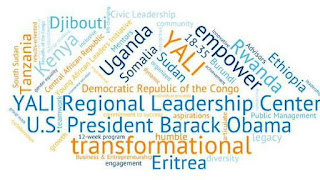Witness!
“When the government begins to have fear of its own citizens, it means we’re in a democracy. If the opposite happens, that’s a sign of a totalitarian State,” Javier Sicilia, Mexican poet and journalist, and the leader of the MPJD
I picked the title ‘Witness’ because there’s just no way I can tell the story of the Mexican movement against the drug war in a few paragraphs. It is huge. But I don’t mind sharing my experience when I stood side by side with the victims of the Drug War last Wednesday.
On March28, I was in Cuernavaca, some city in Mexico’s State of Morellos. Like the rest of the 70-plus journalists, I was there to cover the one-year anniversary of the Movement for Peace with Justice and Dignity for Narconews. It was one of the major assignments for the School of Authentic Journalism this year.
The moment I stepped on the Zócalo (public square) I saw the pain in the faces of the people who had come for the commemoration. If felt so much like a memorial mass –but there was no priest. There were crosses all over. Everything felt sacred. Mourning is sacred.
The pictures of the loved ones were pasted on the walls, some on cardboards, some just carefully laid out on the ground, with burning candles all around. Flowers too were there in plenty.
Just like my Singaporean colleague Kirsten,this was one of those days that you stand in a crowd and listen (more like just hear) to speeches in a language you don’t understand. But emotions are universal. When someone is painfully recalling the death of their kin or the loss of a loved one, you’re bound to hear them cry and wail.
There was plenty of teary moments as the victims of Mexico’s Drug War shared their pain, their loss and their suffering. Here is the story Andrew Stelzer filed after more than six hours on his feet covering the event.
But one thing I remember, the one thing that really moved me, was watching an old man, with white hair and a long bushy white beard going down on his knees to light a candle next to a photo of a young man.
The man had this long look on his face. It’s as if all that mattered to him was just the young face on the photo which he was looking at. He carefully arranged the flowers round the picture and went ahead to light three more candles.
My Spanish is not that good. I really very very little Spanish to have any meaningful conversation in that cute language. However, where emotions are involved, it was easier to just observe and take in whatever was happening.
So, if you’re Kenyan and wondering “so what?”, I’d love to draw a few parallels.
Remember the days when young men would be taken from bus-stops or from their houses never to be seen again because they were members of that outlawed murderous sect called Mungiki? The disappearances and killings that made the word “extrajudicial killings” part of our daily lexicon?
Yes, it was the police who were killing the young men, my bad, there’s a confession of a police officer giving gruesome details in swahili. There are no subtitles, but darn! Crazy crazy stuff! Darn! Take your time and watch the video.
That violence, bred more violence.
To get a background, read more here.
So, did the violence help? No, it did not! All it deed was make us wake up every week to find out that there were gruesome killings and beheadings of whole families, and bodies strewn all over tea plantations. It would keep people on the edge. As we say here, ‘dawa ya moto ni moto’, the English equivalent would be “iron sharpens iron” but goodness, I think, we were taking life too cheaply.
If you think we were not, wait until your kin is killed.
The MPJD anniversary made me remember June 2007. Two police officers were killed in Nairobi’s Mathare slums, Kosovo area. You hear Kosovo and you get a sense of the place, it’s named after the Kosovo (remember Milosevic). That happened at around seven, eight at night. The following day, the security forces descended on the slum… I honestly have no idea how many bodies were taken out of the slums, of people killed in cold blood.
Does the mafia-like Mungiki gang still exist? It does. So, there we are, in a quiet environment where those doing business in this city have to agree to pay ‘taxes’ to some illegal gang. There’s a Preventions of Organised Crime Act. Why is someone not acting on it?
That said, Kenya like Mexico is headed to an election. We know the corrupt swines are lining up their troops to form the next government.
I found Javier Sicilia’s thinking about Mexico’s election with the drug problem quite apt: “The citizens have to ask themselves not who they’re going to vote for, but for what [corrupt] cartel are they going to vote for?”
PS: Was a little sick... jetlag plus flu, I am in that transition between Invalid and Convalescence.
PS2: I see that the videos embedded here are not displaying correctly... will try and see what happens. But check excellent footage on the Drug War here.

Comments
Post a Comment